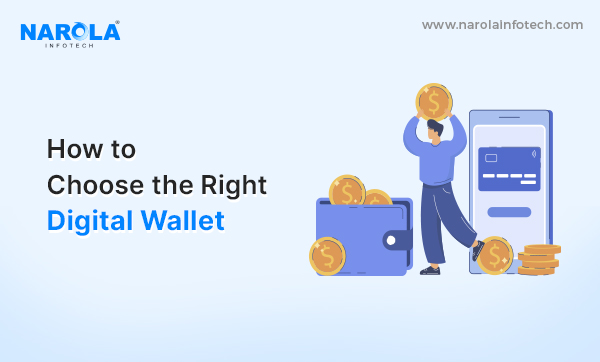In the rapidly evolving landscape of digital payments, selecting the right digital wallet is a decision that demands careful consideration. Here's a brief guide to help you make an informed choice and explore the diverse types of digital wallets available.
How to Choose the Perfect Digital Wallet
Security First
Prioritize security features such as encryption,
multi-factor authentication, and biometric verification. Ensure the wallet
complies with industry standards to safeguard your financial information.
User-Friendly Interface
Opt for a wallet with an intuitive and user-friendly
interface. The ease of navigation and accessibility will contribute to a seamless
digital payment experience.
Supported Features
Assess the wallet's capabilities. Look for features like
peer-to-peer transactions, contactless payments, bill splitting, and loyalty
programs. Choose one that aligns with your specific needs.
Compatibility and Acceptance
Check the compatibility of the digital wallet with your
devices and the acceptance rate among merchants. A widely accepted wallet
ensures convenience across various platforms.
Customer Support
Evaluate the customer support provided by the digital wallet provider. Responsive and efficient support can be crucial in addressing any issues that may arise during your digital transactions.
Types of Digital Wallets - Your Ultimate Digital Payment Solutions
Mobile Wallets
These
wallets, accessible through mobile apps, enable quick and secure payments using
smartphones. Examples include Apple Pay, Google Pay, and Samsung Pay, providing
seamless digital
payment solutions at your fingertips.
Web Wallets
Web wallets operate through web browsers, allowing users to
access their funds from any device with internet connectivity. PayPal is a
notable example.
Desktop Wallets
Installed on computers, desktop wallets offer a secure way
to manage digital assets. Electrum and Exodus are popular choices for
cryptocurrency users.
Hardware Wallets
For heightened security, hardware wallets store
cryptographic keys offline. They are ideal for safeguarding large amounts of
cryptocurrencies like Ledger Nano S or Trezor.
Now, when considering a partner for developing or enhancing
your digital
wallet experience, Narola Infotech emerges as a leading IT solutions provider. With a proven
track record of delivering innovative and secure digital solutions, Narola
Infotech specializes in crafting custom digital wallets tailored to meet the
unique needs of businesses and users alike. Embrace the future of digital
payments with Narola Infotech, your trusted partner in the world of IT
solutions.
For more information on Narola Infotech's digital
wallet development services, visit Narola Infotech. Experience a seamless
and secure digital payment journey tailored just for you.
Related
Articles
Different
Types of Digital Wallets and How to Choose Them?
Digital
Wallet App Development: Everything You Need to Know

Comments
Post a Comment